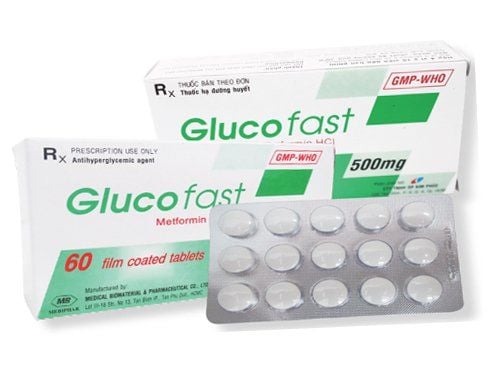This is an automatically translated article.
Posted by Master, Doctor Bui Minh Duc - Head of General Internal Medicine Unit, Vinmec Times City International General Hospital.Diabetes screening aims to detect people with diabetes early but have no clinical symptoms.
1. Screening for type 1 diabetes
Type 1 diabetes is autoimmune in origin with the presence of various types of autoantibodies. Screening for type 1 diabetes is not questionable because of the acute onset of symptoms; most cases of type 1 diabetes are diagnosed very soon after symptoms have progressed.Most cases of type 1 diabetes are diagnosed very soon after symptoms have progressed.
Screening tests to detect asymptomatic cases of antibodies are not recommended because:
The diagnostic threshold values of immunomarker tests are not really consistent; No consensus has been reached on how to act if the results show positive autoantibodies; The rate of type 1 diabetes is very low, so if there is screening, the number of people who can be detected is very small, less than 0.5%, the economic efficiency is not high.
2. Screening for type 2 diabetes
In contrast, type 2 diabetes is very common (accounting for 90 to 95% of patients with diabetes) and in fact more than a third of patients with type 2 diabetes go undiagnosed. Type 2 diabetes progresses slowly and often when patients are newly diagnosed and already have complications of the disease, even some patients who are diagnosed for the first time have suffered severe complications of the disease. diabetes.Chronic hyperglycemia in people with diabetes often causes late damage, dysfunction or organ failure, especially complications of the eyes, kidneys, nerves, heart and blood vessels. People with undiagnosed type 2 diabetes have a significantly higher risk of coronary heart disease, stroke, and peripheral vascular disease than those without diabetes. They are also more prone to dyslipidemia, high blood pressure and obesity, which are risk factors for coronary heart disease.
Therefore, early detection of type 2 diabetes helps to reduce the burden of treatment, reduce the severity of the disease and effectively prevent severe chronic complications of diabetes.
Recommendations on screening for type 2 diabetes:
All people over 45 years old, especially those who are overweight or obese (with BMI > 25 kg/m2), should be screened. If the blood sugar test is in the normal range, the blood sugar should be retested every 3 years.
Subjects with the following risk factors should be screened for blood sugar at a younger age:
People who are sedentary Have a parent with diabetes People of a high-risk race (American skin) Black, Native American, Asian American, Asian Pacific Islander). Giving birth to a large baby, the child's birth weight is greater than 4 kg or has been diagnosed with gestational diabetes. Have high blood pressure (Blood pressure greater than or equal to 140/90 mmHg). Have an HDL-C ≤ 35mg/dl (0.9mmol/l) or a triglyceride level ≥ 250mg/dl (2.82mmol/l) People with polycystic ovary syndrome. Have been diagnosed with impaired glucose tolerance or impaired fasting glucose. Have a medical condition associated with insulin resistance (eg, acanthosis nigricans, polycystic ovaries). Have a history of vascular disease. Both the fasting blood glucose test and the hyperglycemia test can be used to screen for diabetes, but the fasting blood glucose test is often used because of its economy, convenience, and ease of use.
3. Screening for type 2 diabetes in children
The rate of children with type 2 diabetes in recent years has increased the most, especially among children with obesity and children of certain ethnic groups at high risk.All children who are overweight and have two or more of the following risk factors should be screened for type 2 diabetes:
Have a parent or grandparent with diabetes Be of a high-risk ethnicity Have insulin resistance or medical condition associated with insulin resistance (acanthoma, hypertension, dyslipidemia, polycystic ovary syndrome) Mother with history of gestational diabetes Initial screening at about 10 years of age, retest at puberty if puberty is early. If results are normal, try again every 2 years.
SEE ALSO:
Children can also get diabetes Distinguish type 1 and type 2 diabetes in detail according to the guidelines of the Ministry of Health Diabetics should get these vaccines every year
Children can also get diabetes Distinguish type 1 and type 2 diabetes in detail according to the guidelines of the Ministry of Health Diabetics should get these vaccines every year














